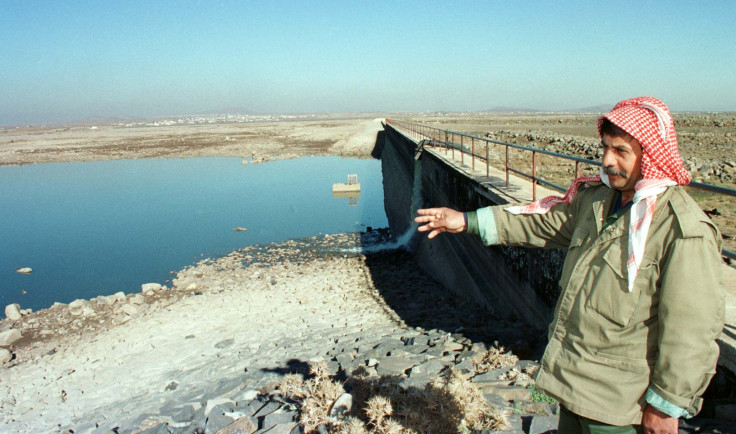ISIS And Assad Waging A 'Water War,’ Draining Key Lake That May Make A Bad Situation Even Worse

Syrian militants and government forces are waging a “water war” for control of the country’s scarce resource, increasing the likelihood they may trigger a major humanitarian crisis: Lake Assad, which supplies drinking water and irrigation supplies for about five million people, is drying up.
Nouar Shamout, a researcher at Chatham House, a London-based policy institute, explained that the use of water supplies as a tactical weapon could “escalate fatalities and migration rates” in the country’s civil war, which is now in its third year.
If Lake Assad loses an additional three feet, “the water system will stop working,” he wrote in a June 24 commentary. “This could result in a humanitarian catastrophe that would overwhelm agencies on the ground. … In spite of these alarming indications, both Syria's regime and opposition groups are in a state of denial: neither is responding to, or preparing for, a food and water crisis.”
Under the watch of the Islamic State of Iraq and Syria (ISIS) recently remamed The Islamic State -- Lake Assad has experienced a record 20-foot (6-meter) drop in water levels, Al Jazeera reported. Pumps used to bring water east and west are now either entirely out of service or are supplying only a relative drip of water to residents in Aleppo and Al Raqqa, who are forced to draw water from unreliable and potentially contaminated sources, such as puddles in the streets.
The shortages come as Syria enters its eighth summer of drought; they risk exacerbating an ongoing widespread water and food crisis, experts say.
Lake Assad is likely being drained by overuse at Syria’s largest hydroelectric facility, the Euphrates Dam. A spike in electricity generation is draining the reservoir at an excessively fast pace, according to Al Jazeera.
The lake “is pumping out more than it is receiving," Waleed Zayat, a mechanical engineer working for the Syrian opposition’s interim government, told Al Jazeera. "This is because the electricity generators are working 24 hours a day, more than they should be.”
Both the Islamic State group and the Syrian government appear to be culpable in overusing the dam. The rebels, who have military control of the facility, also control the energy it produces and where it is delivered. But Bashar al-Assad’s regime also requires that the administration send electricity to government-controlled areas, like Hama, an anonymous member of the Syrian opposition coalition told Al Jazeera.
© Copyright IBTimes 2025. All rights reserved.





















